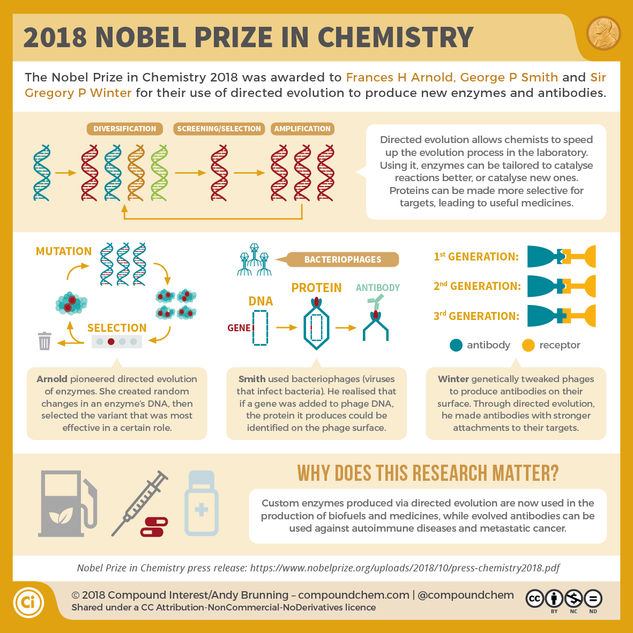2018’s biggest science stories
As we head into 2019, it’s time to take a look back at some of the biggest science news stories over the past year. This year’s science news featured water on Mars, the effects of e-cigarettes, new types of isomerism and bonding, and more!
2018 saw a number of significant discoveries in sci ... more
Unleashing our immune systems against cancer
The first of the 2018 Nobel Prizes is awarded. The 2018 Nobel Prize in Physiology or Medicine was awarded to James P. Allison and Tasuku Honjo for their discovery of cancer therapy by stimulating the immune system to attack tumour cells. This graphic takes a look at the prize-winning research. more
The creation of tools made from laser light
After the Nobel Prize for Physiology or Medicine has been awarded, it is physics' turn. The 2018 Nobel Prize in Physics was awarded to Arthur Ashkin, Gérard Morou and Donna Strickland for their pioneering innovations in the field of laser physics. Strickland is only the third woman to recei ... more






